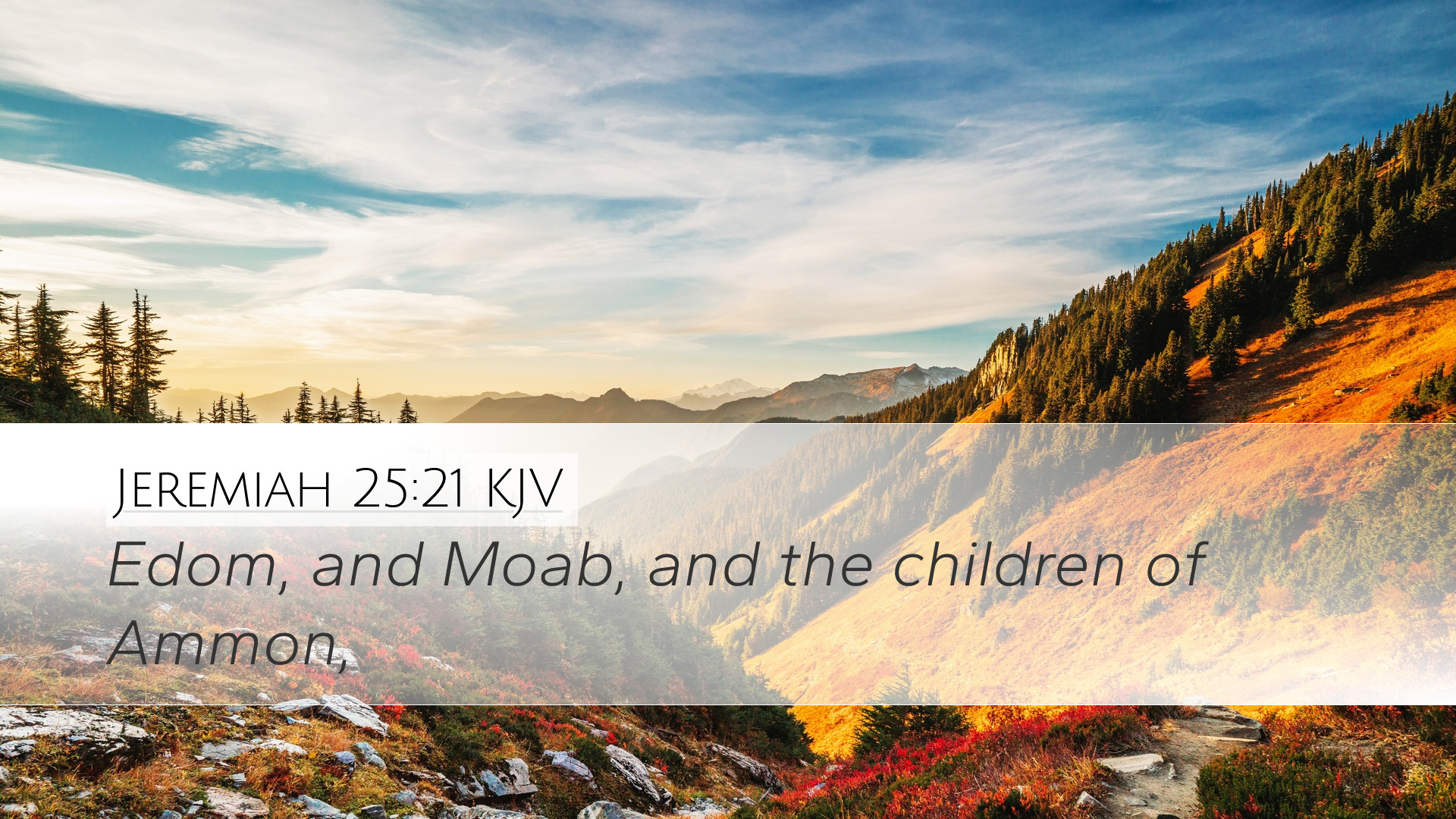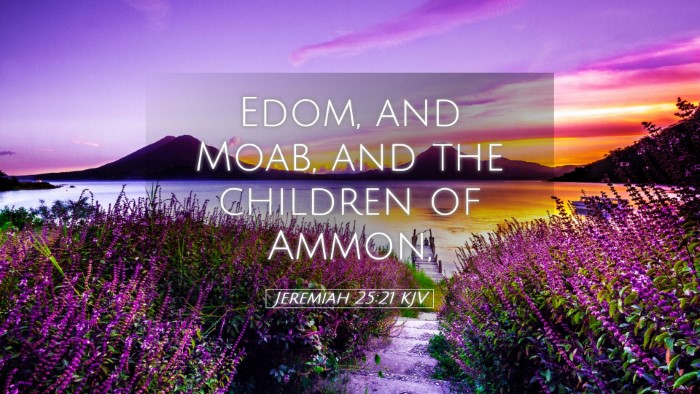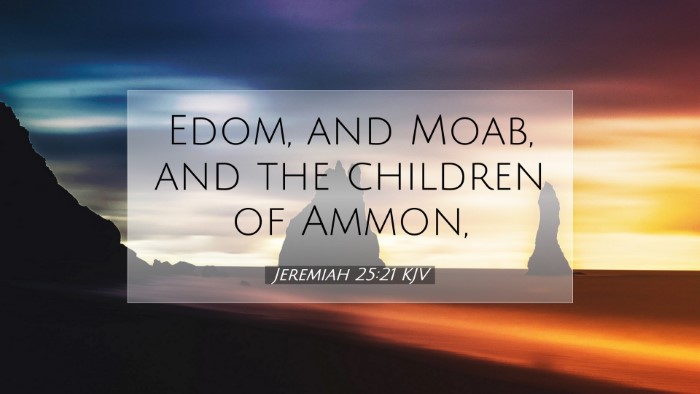Commentary on Jeremiah 25:21
Jeremiah 25:21 reads: "And Edom, and the kings of the Medes, and the children of Ammon, and all that are in the utmost corners, that dwell in the wilderness."
Contextual Overview
This verse is part of Jeremiah’s prophecy concerning the impending judgment against various nations. In this chapter, God communicates through Jeremiah about the coming calamity that will befall not just Judah but also surrounding nations, demonstrating that divine judgment is not exclusive to Israel. The mention of Edom, the Medes, and Ammon provides insights into the geopolitical landscape of that time.
Insights from Public Domain Commentaries
Matthew Henry's Commentary
Matthew Henry emphasizes the significance of Edom in biblical history. As descendants of Esau, the Edomites represent a group in close relation to Israel but are marked by their long-standing animosity. Henry notes that the judgment on Edom serves as a reminder of the Lord’s sovereignty and righteousness. Illustrating God’s impartiality, Henry argues that even those nations that appear distant from Israel will be held accountable for their actions.
Albert Barnes' Notes on the Bible
Barnes expands on the identities of the nations mentioned. He points out the historical background of the Medes, who played a significant role in the fall of Babylon, and how their inclusion signifies the comprehensive scope of God’s judgment. Barnes also highlights that the 'children of Ammon' were often at odds with Israel, and God’s declaration against them reflects a broader theme of divine justice against those who antagonize His people. In this way, the prophecy can be seen as both a warning and a reminder of God’s holiness and justice in dealing with sin.
Adam Clarke's Commentary
Clarke introduces a more detailed analysis of the geographical and cultural implications of the nations named in this verse. He notes that Edom, Ammon, and the Medes symbolize broader categories of nations that represent hostility toward God’s people. Clarke interprets the references to these specific groups as God’s way of illustrating that His judgment extends beyond Israel, invoking a universal principle of accountability among nations. He expounds the phrase "that dwell in the wilderness," suggesting that these nations, despite their geographical or cultural distinctions, are under divine watch and will ultimately face consequences for their actions.
Theological Implications
This verse carries profound implications for understanding the nature of divine judgment. It challenges the belief that God’s protection and judgment are exclusively tied to one nation. The inclusivity of the nations indicated in Jeremiah 25:21 illustrates God's overarching authority and the universality of His law.
- Judgment of Nations: God's judgment is not confined to Israel; it extends to all nations. This serves as a sobering reminder that no one can escape divine scrutiny.
- God's Sovereignty: The diversity of nations mentioned emphasizes God's sovereign rule over every corner of the earth. There is no escape from His oversight.
- Historical Continuity: The text invites readers to consider the historical enmities and alliances that shaped the ancient Near East, helping them to appreciate the dynamics of divine intervention in human affairs.
Practical Application
For contemporary believers, this passage urges a reflective consideration of justice, accountability, and the universal reach of God’s authority. As pastors and students delve into this verse, they are encouraged to grapple with the implications of God’s judgment on nations and individuals in modern contexts.
- Call to Holiness: Acknowledging God’s impartiality invites believers to pursue holiness in their own lives, recognizing that their actions are under divine scrutiny.
- Global Perspective: The reference to various nations encourages believers to adopt a global outlook in their prayers and missions, understanding that God sees all and calls all to repentance.
- Hope in God's Justice: In a world seemingly rife with injustice, this passage reassures believers that God ultimately will enact justice, even if it is delayed.
Conclusion
Jeremiah 25:21 serves as a potent reminder of the breadth of God's sovereignty and justice. The insights from the rich tradition of biblical commentary provide depth to the understanding of this verse, urging scholars and students alike to engage with the text deeply. Through this exploration, may readers be empowered to proclaim the truths of Scripture and live in light of God's righteous judgment and mercy.


